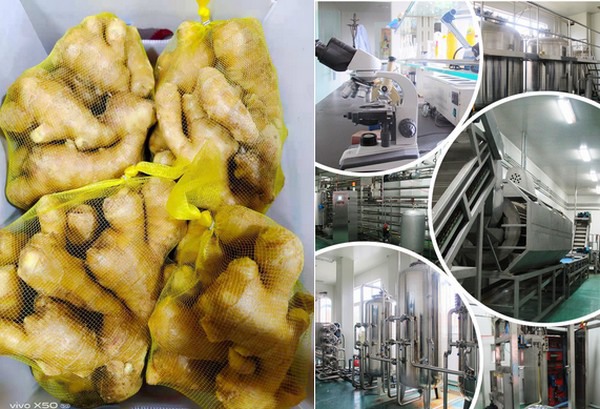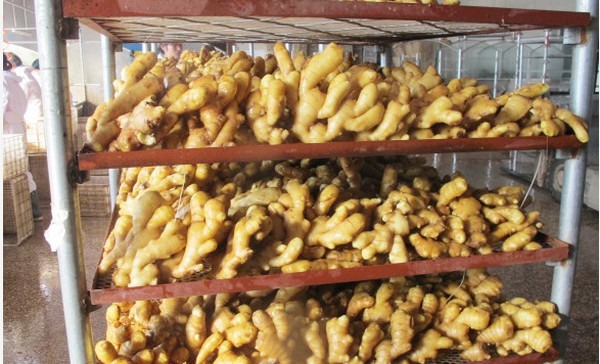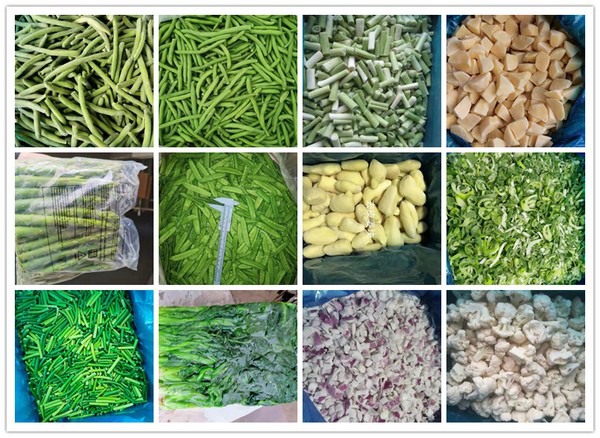The period between May and July is the off-season for Chinese ginger. Add to this the impact of the Covid-19 pandemic, and it is not surprising to see that overseas market demand for Chinese ginger has been weak. The price of Chinese ginger has significantly dropped in the last few weeks. Manager Chen of Ju County Taiyuan Foodstuffs Co., Ltd. recently talked about current conditions in the Chinese ginger market.

"The price of regular ginger recently dropped to 2,100 USD per ton, while the price of organic ginger reached around 2,400 USD per ton. The ginger market is expected to warm up again in August. The price will then go up again," said manager Chen.
Market demand for organic ginger is stronger than demand for regular ginger. Organic ginger requires more certification than regular ginger. And some farmers find it difficult to meet the requirements because the use of chemical pesticides exceeds the norm. Most farmers do not wish to expend time, effort, and resources to improve the quality of their ginger. That is why the export volume of organic ginger is relatively small. There simply is not enough supply.

Ju County Taiyuan Foodstuffs has an organic ginger plantation in Guangxi that covers an area of 53 hectares. "Unlike conditions in the interior, our plantation in Guangxi is established on open ground with fertile soil. Furthermore, the level of pesticide residue is low. Guangxi is one of the major organic ginger production areas in China. This year we have also begun to develop organic ginger production in Dalian, in northeast China, because the number of clients has grown and their demand is more diverse than before. We have doubled the surface area of our ginger plantations and invested in a ginger juice processing line. We use only the highest level of imported equipment and the ingredients for our organic ginger juice all come from our own plantations. That is how we guarantee the product quality and shorten the supply chain to reduce the cost price.
In addition to the development of ginger export, Ju County Taiyuan Foodstuffs has also recently begun to export quick-frozen vegetables. "The European market has strict import standards for quick-frozen vegetables from China. Chinese exporters have to obtain a variety of certificates. That is why we are GLOBAL GAP, BRC, SEDEX, and SMETA certified. Most of our European clients import regular quick-frozen products, but a small number imports quick-frozen organic products. Clients in England, the Netherlands, and Germany pay a relatively high price for imported quick-frozen vegetables. We mainly rely on loyal clients for the bulk of our order volume. We have seen virtually no growth among new clients," said manager Chen.

When asked about the advantages of quick-frozen vegetables, manager Chen replied, "the added value of domestic quick-frozen vegetables is relatively low. We compete with similar products from other countries on the basis of low prices. However, not only have Chinese companies raised the standards of vegetable plantation in recent years, but they have also invested heavily in the quality of processing equipment. Furthermore, there is a huge variety of vegetables that will satisfy the diverse demands of any customer. That is why Chinese quick-frozen vegetables still occupy an advantageous position in the market."
For more information:
Erin Chen - Manager
Juxian Taiyuan Foodstuffs Co., Ltd.
Tel.: +86 18210938299
E-mail: jxtyfood@hotmail.com
Website: www.jxtyfood.com
